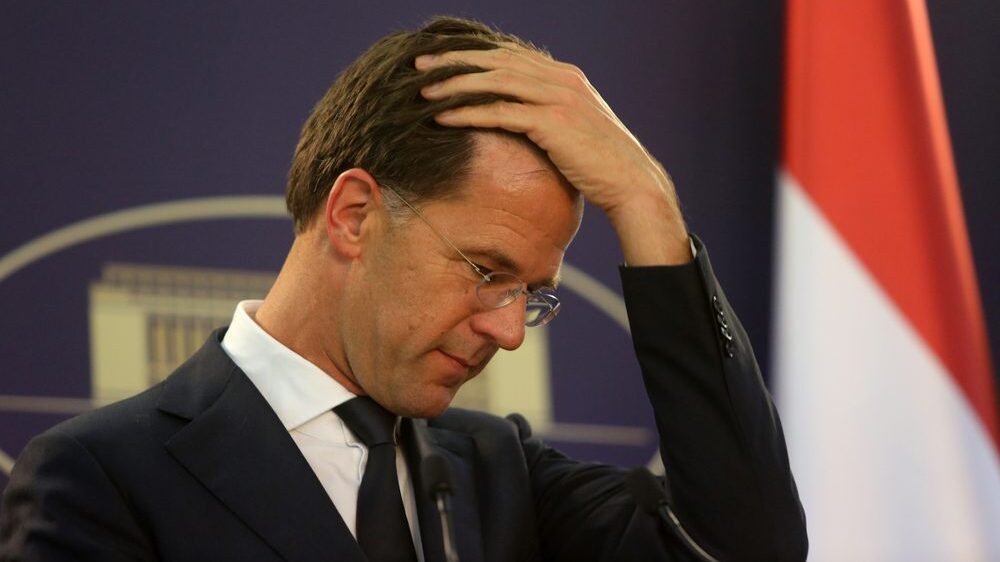
Mark Rutte.
Photo: Gabriel Petrescu / Shutterstock.com
Results from a new opinion poll have indicated that the trust levels of Mark Rutte’s liberal-globalist cabinet have fallen to a rock-bottom low, with less than one in five Dutch citizens saying that they have confidence in the executive body.
The survey, carried out and published by the news outlet EenVandaag, revealed that a dismal 17% of those surveyed expressed having confidence in Prime Minister Rutte’s cabinet, continuing a trend, which so far this year, has failed to see the ruling coalition—comprised of the People’s Party for Freedom and Democracy (VVD), Democrats 66 (D66), Christian Democratic Appeal (CDA) and Christian Union (CU)—gain more than 20% of the population’s trust.
Dutch MP Simone Kerseboom (FvD), in comments given to The European Conservative, addressed the opinion poll’s results, arguing that it “illustrates one thing clearly: the façade is crumbling and the majority of people in the Netherlands are no longer fooled by the mainstream press which continues to serve as an extension of our government.”
Continuing, Kerseboom added:
From the tragic child allowance affair that saw over 1,000 children being removed from their families by child protection services and which have still not been returned, to the nitrogen crisis in which our efficient and highly productive farmers are being expropriated. Then there is the climate policy crisis, the immigration crisis, the housing crisis, the education crisis, and now even the call to ban opposition parties such as FvD which are critical of how the political system currently operates: people have had enough of the rising cost of living and the breakdown of social cohesion. The government continues to make decisions and implement policies and laws that do not benefit the people of the Netherlands and the social and financial toll that this has taken is starting to really rise to the surface of our society now.
In light of the figures revealed by the poll, the Forum for Democracy lawmaker called for Rutte’s government to promptly step down since it is no longer representative of the Dutch population.
Unsurprisingly, the survey indicated that confidence levels are highest among voters of Rutte’s VVD party, at 47%, just short of the majority. Among voters of the other coalition parties, confidence in the cabinet is surprisingly low, with 31% of D66, 28% of ChristenUnie, and 22% of CDA voters reporting that they trust the cabinet.
Dutch voters are especially angered that the Cabinet has failed to achieve anything meaningful on issues concerning asylum seekers and housing. Perhaps illustrative of a pervasive feeling among the wider population, one of the survey’s participants said: “This cabinet does not solve problems. It only creates them.”
The widespread lack of confidence in the government appears to be, at least in part, due to its lack of decisiveness which voters attribute to the ideological differences among coalition members. “The Cabinet is letting everything run its course because of the major differences of opinion,” said one survey participant.
Support for the Dutch government, which climbed as high as 70% around the onset of the COVID-19 pandemic, has steadily declined since then. It dropped precipitously after the start of the Russo-Ukrainian war.
Oddly, despite the dismal levels of support and trust enjoyed by Rutte’s cabinet, a decreasing number of voters believe it will fall this year, at 34%, down from 48% in March when ruling coalition parties lost badly in the country’s provincial elections.
“The Provincial Council elections really seemed like the final blow for Rutte, but no, they dug themselves in again and muddled through again,” said one voter. Another voter believes Rutte’s cabinet is sticking together out of fear of being voted out if new elections were to be held. “Afraid of being punished in new elections, sticking together is the only option,” the participant said.
More than 22,000 Dutch citizens took part in the EenVandaag survey.
